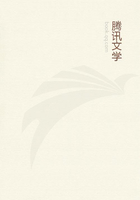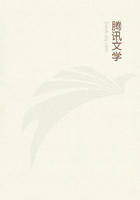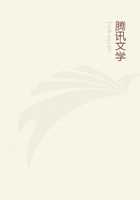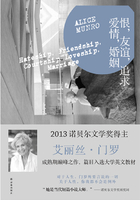*****Note--Hence we see, that the infinite essence and the eternity of God are known to all. Now as all things are in God, and are conceived through God, we can from this knowledge infer many things, which we may adequately know, and we may form that third kind of knowledge of which we spoke in the note to II. xl., and of the excellence and use of which we shall have occasion to speak in Part V. Men have not so clear a knowledge of God as they have of general notions, because they are unable to imagine God as they do bodies, and also because they have associated the name God with images of things that they are in the habit of seeing, as indeed they can hardly avoid doing, being, as they are, men, and continually affected by external bodies. Many errors, in truth, can be traced to this head, namely, that we do not apply names to things rightly. For instance, when a man says that the lines drawn from the centre of a circle to its circumference are not equal, he then, at all events, assuredly attaches a meaning to the word circle different from that assigned by mathematicians. So again, when men make mistakes in calculation, they have one set of figures in their mind, and another on the paper. If we could see into their minds, they do not make a mistake; they seem to do so, because we think, that they have the same numbers in their mind as they have on the paper. If this were not so, we should not believe them to be in error, any more than I thought that a man was in error, whom I lately heard exclaiming that his entrance hall had flown into a neighbour's hen, for his meaning seemed to me sufficiently clear. Very many controversies have arisen from the fact, that men do not rightly explain their meaning, or do not rightly interpret the meaning of others. For, as a matter of fact, as they flatly contradict themselves, they assume now one side, now another, of the argument, so as to oppose the opinions, which they consider mistaken and absurd in their opponents.
XLVIII. In the mind there is no absolute or free will; but the mind is determined to wish this or that by a cause, which has also been determined by another cause, and this last by another cause, and so on to infinity.
Proof--The mind is a fixed and definite mode of thought (II. xi.), therefore it cannot be the free cause of its actions (I. xvii. Cor. ii.); in other words, it cannot have an absolute faculty of positive or negative volition; but (by I. xxviii.) it must be determined by a cause, which has also been determined by another cause, and this last by another, &c. Q.E.D.
*****Note--In the same way it is proved, that there is in the mind no absolute faculty of understanding, desiring, loving, &c.
Whence it follows, that these and similar faculties are either entirely fictitious, or are merely abstract and general terms, such as we are accustomed to put together from particular things. Thus the intellect and the will stand in the same relation to this or that idea, or this or that volition, as "lapidity" to this or that stone, or as "man" to Peter and Paul. The cause which leads men to consider themselves free has been set forth in the Appendix to Part I. But, before I proceed further, I would here remark that, by the will to affirm and decide, I mean the faculty, not the desire. I mean, I repeat, the faculty, whereby the mind affirms or denies what is true or false, not the desire, wherewith the mind wishes for or turns away from any given thing. After we have proved, that these faculties of ours are general notions, which cannot be distinguished from the particular instances on which they are based, we must inquire whether volitions themselves are anything besides the ideas of things. We must inquire, I say, whether there is in the mind any affirmation or negation beyond that, which the idea, in so far as it is an idea, involves. On which subject see the following proposition, and II. Def. iii., lest the idea of pictures should suggest itself. For by ideas I do not mean images such as are formed at the back of the eye, or in the midst of the brain, but the conceptions of thought.
XLIX. There is in the mind no volition or affirmation and negation, save that which an idea, inasmuch as it is an idea, involves.
Proof--There is in the mind no absolute faculty of positive or negative volition, but only particular volitions, namely, this or that affirmation, and this or that negation. Now let us conceive a particular volition, namely, the mode of thinking whereby the mind affirms, that the three interior angles of a triangle are equal to two right angles. This affirmation involves the conception or idea of a triangle, that is, without the idea of a triangle it cannot be conceived. It is the same thing to say, that the concept A must involve the concept B, as it is to say, that A cannot be conceived without B. Further, this affirmation cannot be made (II. Ax. iii.) without the idea of a triangle. Therefore, this affirmation can neither be nor be conceived, without the idea of a triangle. Again, this idea of a triangle must involve this same affirmation, namely, that its three interior angles are equal to two right angles.
Wherefore, and vice versa, this idea of a triangle can neither be nor be conceived without this affirmation, therefore, this affirmation belongs to the essence of the idea of a triangle, and is nothing besides. What we have said of this volition (inasmuch as we have selected it at random) may be said of any other volition, namely, that it is nothing but an idea. Q.E.D.
Corollary--Will and understanding are one and the same.
Proof--Will and understanding are nothing beyond the individual volitions and ideas (II. xlviii. and note). But a particular volition and a particular idea are one and the same (by the foregoing Prop.); therefore, will and understanding are one and the same. Q.E.D.

